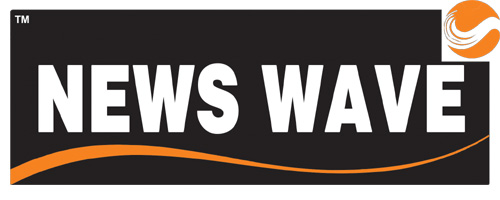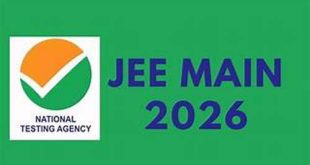- Driven by Expanding Shopper Base and Emerging Business Models
- India solidifies its position as the second-largest e-retail shopper base globally, with a $60 billion market in 2024.
Newswave @ New delhi
India’s e-retail market is projected to reach $170-$190 billion in gross merchandise value (GMV) by 2030, according to a new report by Bain & Company and Flipkart, titled “How India Shops Online 2025.” The report highlights India’s emergence as the second-largest e-retail shopper base globally, with an annual shopper base of over 270 million in 2024.
India’s e-retail market is projected to scale 3x by 2030 from the current $60 billion. India’s retail market, which was over $1 trillion in size in 2024, continues to be a critical channel even as the online channel grows.
While the outlook for e-retail remains robust, the stress in India’s consumption and discretionary spending due to macroeconomic headwinds in recent years, has also impacted e-retail. This has led to a slowdown in growth to 10-12% in 2024, compared to historical growth rates exceeding 20%.
However, by 2030, e-retail is projected to exceed 18% growth with nearly 1 in 10 retail dollars spent online, fueled by increased discretionary spending as India’s per capita GDP surpasses $3,500–$4,000- a key inflection point observed in e-retail spending globally. Categories with high purchase frequency, such as grocery, lifestyle, and general merchandise, are set to contribute around 70% of the incremental growth of the e-retail market by 2030, with penetration levels expected to climb two to four times from current levels.
“India’s e-retail market is demonstrating remarkable resilience and adaptability,” said Arpan Sheth, Partner, Bain & Company. “The rise of quick commerce, trend-first commerce, and hyper-value commerce is transforming the landscape, creating exciting opportunities for brands and retailers who can cater to the diverse needs of Indian consumers. The democratization of the shopping landscape with widening access to national brands/ assortment in Tier-3+ cities and remote, underserved areas is a key driver of growth.”
Tier-2 & smaller cities demonstrate significant potential
E-retail has expanded from Tier-2 cities to Tier-3 and smaller cities with ~60% of new customers since 2020 and ~45% of orders since 2023 from these areas. This expansion has enabled access to underserved regions, as seen by e-retail shopper penetration in the Northeast being 1.2 times higher than the rest of India. Tier-2 and smaller cities also demonstrate significant spending potential, as evidenced by their average selling prices across categories that are similar to or only slightly lower than those in Metro/ Tier 1 cities. The seller ecosystem is also diversifying, with 60% sellers onboarded since 2021 hailing from Tier-2 or smaller cities.
The report highlights three key disruptions that will define the next chapter of growth:
Quick Commerce (Q-commerce) : Thriving in India and bucking global trends, it has surged to ~10% of overall e-retail GMV and 70-75% of e-grocery GMV. Q-commerce is forecasted to grow by over 40% annually until 2030, fueled by expansion across categories beyond grocery, geographies beyond the top 6 cities, customer segments and product range beyond legacy and national brands.
“Quick commerce reached $6-7B scale in 2024, doubling every year for the last two years. India has bucked global trends and unlocked a profitable model to scale quick commerce. Players have scaled profitability by growing basket value, improving gross margins and lowering cost per shipment. We have seen a ~40% increase in average order values, 3-4 pps improvement in gross margins and 30% lower logistics cost per shipment (in mature catchments) over the last 2 years. However, to sustain profitable growth, players must adapt their business models and supply chains as they expand selection, geographies and manage competition.” said Manan Bhasin, Partner and leading member of the Consumer Products & Retail practice, Bain & Company.
Trend-First Commerce : Rapidly gaining momentum, particularly in fashion, which is expected to quadruple to $8-10 billion by 2028, with more than 50% online penetration. Trend-first commerce is gradually extending to other categories e.g. Beauty & Personal Care (BPC), electronics, and luggage.
Hyper-Value Commerce : Scaling globally and in India, with its share of e-retail GMV scaling from ~5% in 2021 to 12-15% in 2024. Players have gained traction with lower-middle-income consumers, especially in Tier-2 and smaller cities, due to affordable product offerings.
“India has emerged as the world’s second-largest e-retail market by shopper base, with over 270 million online shoppers driving a $60 billion industry. At Flipkart, we’re committed to democratizing e-retail—enabling shoppers from the ‘many Indias’ to fulfill their aspirations every day,” said Vijay Iyer, Vice President and General Manager, Flipkart Ads.
He further added, “Given advertising on e-retail platforms in India is 20%-25% of the total digital media spend compared to 25%-30% in the US and 55%-60% in China, there is significant growth potential in the Indian retail media. Retail media has become a key growth driver, enabling brands to enhance visibility, optimize performance, and build lasting customer relationships. Understanding the power of retail ads, Flipkart Ads empowers brands and sellers with data-driven insights to stay ahead in this dynamic, digital-first economy.”
The report also emphasizes the importance of understanding the nuances of “many Indias,” with purchase behaviour varying dramatically by age, region, city tier, and e-retail maturity. Notably, Gen Z shoppers, who represent approximately 40% of India’s e-retail shoppers, are more experimental, rely heavily on social media for brand discovery, spend three times more on insurgent fashion brands, make faster purchase decisions, and show a marked preference (over 90%) for UPI for digital payments.
The report provides actionable insights for brands and sellers to capitalize on the evolving and diverse consumer preferences by adapting their product range, developing new products aligned with evolving trends, leveraging targeted e-retail advertising, and enhancing conversion through improved ratings, faster delivery options, and optimized product catalogues.
Bain & Company in 65 cities of 40 countries

Bain & Company is a global consultancy that helps the world’s most ambitious change makers define the future. Across 65 cities in 40 countries, we work alongside our clients as one team with a shared ambition to achieve extraordinary results, outperform the competition, and redefine industries. We complement our tailored, integrated expertise with a vibrant ecosystem of digital innovators to deliver better, faster, and more enduring outcomes. Our 10-year commitment to invest more than $1 billion in pro bono services brings our talent, expertise, and insight to organizations tackling today’s urgent challenges in education, racial equity, social justice, economic development, and the environment. Since our founding in 1973, we have measured our success by the success of our clients, and we proudly maintain the highest level of client advocacy in the industry.
Flipkart registered user base of 500 million

The Flipkart Group is one of India’s leading digital commerce entities and includes group companies Flipkart, Myntra, Flipkart Wholesale, Cleartrip, and super.money. Established in 2007, Flipkart has enabled millions of sellers, merchants, and small businesses to participate in India’s digital commerce revolution. With a registered user base of more than 500 million, Flipkart’s marketplace offers over 150 million products across 80+ categories. Today, there are over 1.4 million sellers on the platform, including Shopsy sellers. With a focus on empowering and delighting every Indian by delivering value through technology and innovation, Flipkart has created thousands of jobs in the ecosystem while empowering generations of entrepreneurs and MSMEs. Flipkart has pioneered services such as Cash on Delivery, No Cost EMI, Easy Returns, and UPI. These customer-centric innovations focus on enhancing digital payment offerings for all customers while making online shopping more accessible and affordable for millions of Indians
 News Wave Waves of News
News Wave Waves of News








